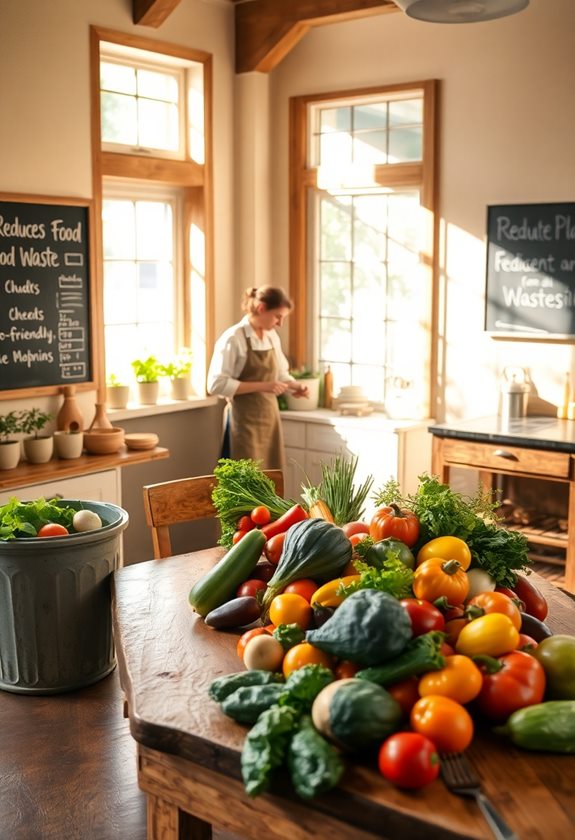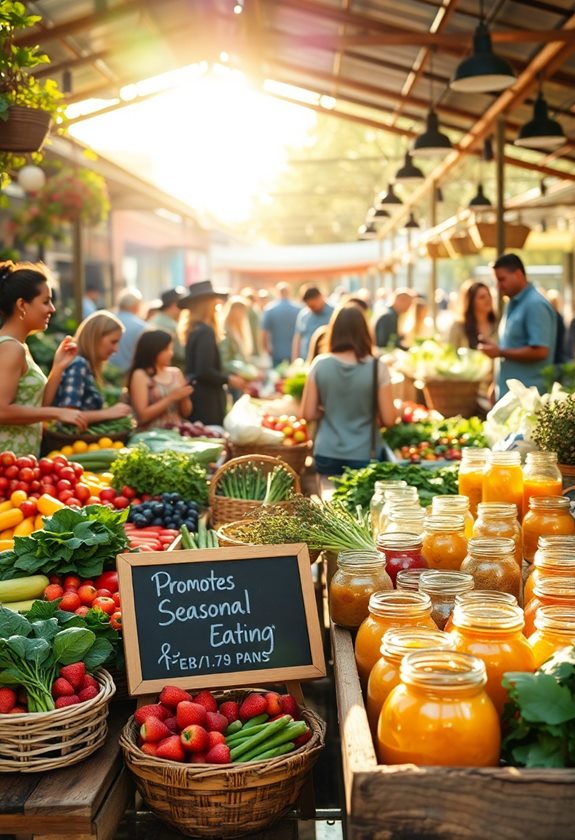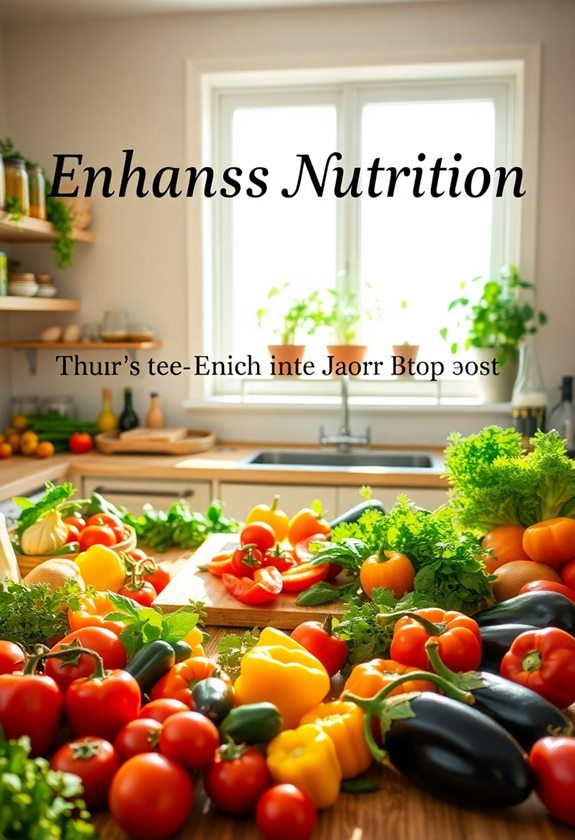Eco-friendly meal planning helps you eat healthier while cutting costs and caring for the planet. By planning your meals, you're less likely to waste food and more likely to use leftovers creatively. Isn't it great to save money on groceries? Plus, you can enjoy seasonal fruits and veggies that taste better and support local farmers. This choice boosts your nutrition too! When you pick fresh, local produce, you're getting more nutrients. Using thoughtful meal plans is a win for your health and the environment. Want to find out how you can easily start this lifestyle? 🌱
Key Takeaways
- Eco-friendly meal planning reduces food waste by ensuring only necessary items are purchased and leftovers are creatively used in new meals.
- It supports local farmers by prioritizing seasonal and local produce, enhancing meal quality and community economies.
- Seasonal eating promotes fresher, more nutritious ingredients, contributing to a healthier diet and diverse meals.
- Meal planning helps save money by reducing grocery bills and minimizing impulse purchases during shopping trips.
- It encourages sustainable practices by fostering mindful consumption and reducing environmental impact through conscious food choices.
Reduces Food Waste

Planning your meals can markedly reduce food waste, making it a simple yet effective solution. When you take a moment to decide what to eat for the week, you're not just planning meals; you're also cutting down on the food you might throw away. Have you ever found a sad, moldy piece of bread hiding in the back of your fridge? By knowing what you need, you can avoid those surprises.
Start by creating a shopping list based on your meal plan. This way, you buy only what you'll use. You might even want to check your pantry before heading to the store. Have a few ingredients left over? Try to incorporate them into your meals!
Another easy tip is to store leftovers correctly. Instead of tossing them, think of ways to repurpose them. Last night's veggies can turn into a tasty soup or stir-fry.
In the end, meal planning not only helps you enjoy fresh meals but also shows respect for our planet. 🌍 So, why not give it a try? You'll feel good knowing you're doing your part to reduce food waste!
Saves Money
By cutting down on food waste, you're already taking a step toward saving money. When you plan your meals, you buy only what you need, which means fewer trips to the store and less impulse buying. Have you ever noticed how buying in bulk can lead to extra snacks lying around? Meal planning helps you avoid that!
Here's a simple breakdown of how eco-friendly meal planning can save you cash:
| Action | Benefit | Result |
|---|---|---|
| Plan your meals | Buy only necessary items | Less waste |
| Use leftovers | Make new meals | Lower grocery bills |
| Cook at home | Avoid expensive takeout | More savings |
Promotes Seasonal Eating

Embracing seasonal eating not only enhances your meals but also supports local farmers and the environment. When you plan your meals around what's in season, you're treating yourself to fresher, tastier ingredients. Have you ever bitten into a sun-ripened tomato in summer? It's a completely different experience than one that's been shipped from far away.
Eating seasonally can also improve your health. Seasonal fruits and veggies are packed with nutrients because they're picked at their peak ripeness. You'll notice it in the vibrant colors and flavors on your plate! Plus, you might discover new favorites. Ever tried roasted Brussels sprouts in the fall or sweet peaches in the summer?
Supports Local Farmers
Focusing on seasonal produce naturally leads to supporting local farmers, which is a win-win for everyone involved. When you choose local fruits and veggies, you're not just enjoying fresh flavors; you're also helping your community thrive. Have you ever thought about how your food choices affect the farmers near you?
By buying from local farmers, you help reduce transportation costs and pollution. Plus, local farms often use sustainable practices, meaning your food is healthier for the planet. Imagine walking through a farmers' market, chatting with a farmer about their produce, and knowing you're making a positive impact. 🌱
When you plan meals around what's in season, you're more likely to find ingredients that are fresh and full of flavor. This connection to your food and its source can make cooking feel more meaningful.
Enhances Nutrition

By using local produce, you're likely to find items that haven't traveled far, which means they're fresher and more nutrient-rich. Plus, seasonal ingredients often have a lower carbon footprint since they don't need to be shipped from distant places. Isn't that a win-win?
When you focus on variety and balance in your meals, you're also more likely to get a wide range of nutrients. Think about it—adding colors to your plate not only makes your meals look great but also guarantees you're getting different vitamins. 🤖🤕
Next time you plan your meals, try to include seasonal fruits and vegetables. You might discover new favorites! And remember, cooking at home allows you to control what goes into your meals, leading to healthier choices. So, why not give it a try? Your body will thank you!
Encourages Sustainable Practices
You might wonder, how does meal planning help with waste? By planning your meals, you buy only what you need, reducing spoilage. Ever found a sad, forgotten vegetable at the back of your fridge? Meal planning helps prevent that! Plus, you can get creative with leftovers, turning them into new meals.
Imagine making a delicious stir-fry from last night's veggies. Not only does this save money, but it also reduces the amount of food that ends up in landfills.
Ultimately, eco-friendly meal planning encourages you to make choices that benefit both your health and the environment. So, why not give it a try? You'll feel good about what you eat and the positive impact you have on our planet! 🌍

